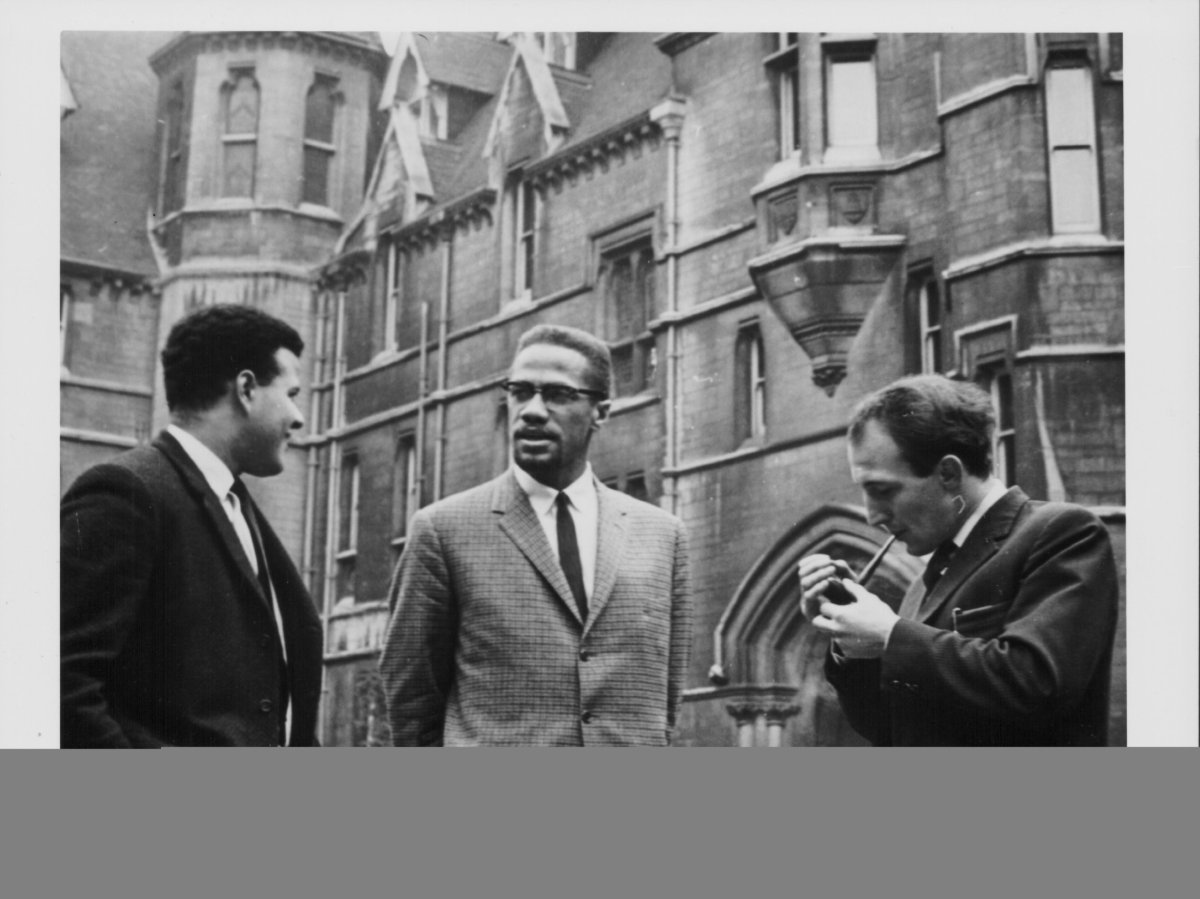
Turkey has renamed the street on which the new U.S. Embassy will be located to honor American black Muslim civil rights activist Malcolm X.
The renaming could be read as making a political point against the U.S., especially as the Turkish government has a history of using charged names for streets hosting other nations' embassies, Agence France Presse explained.
The street—formerly called 1478 Street—was adorned with its new sign early Thursday. The road sits in the Cukurambar district in Ankara, where the U.S. embassy is still under construction. The complex is expected to be finished by 2020, according to construction contractors BL Harbert.
The Ankara city council decided last month to rename the street after Malcolm X, who was shot dead in February 1965. Turkish President Recep Tayyip Erdogan told the activist's daughters that the name of Malcolm X would "live on" in the Turkish capital.
Born in 1925, Malcolm X went on to become one of the most influential and well-known black activists in American history, as well as one of the most notable Muslim campaigners. A vocal supporter of black self-determination, black self-defense and pan-Africanism, his critics considered him a dangerous racist bent on the destruction of white America.
In contrast to Martin Luther King Jr., Malcolm X dismissed nonviolent protests and instead advocated for—if required—violent revolutionary politics to achieve full rights and freedom for black people.
Malcolm X was a vociferous critic of the U.S., which he denounced as a damaging imperialist and neo-colonialist system. Though he was an inspirational figure for many black people and Muslims—and has remained so in death—he was considered a serious threat by the white establishment.

Renaming the street that's home to the new U.S. Embassy is a notable diplomatic slight against the American government, not least as the current administration has been regularly accused of racism and links to white supremacist and fascist groups.
Turkey has similarly used street names to score political points against Washington. After the U.S. criticized the country's military offensive into northern Syria to destroy U.S.-backed Kurdish forces there, Ankara renamed the street on which the current U.S. Embassy sits to Olive Branch, which is also the name of the offensive.
And in January, Turkish officials took aim at the United Arab Emirates. The two nations fell out after the UAE foreign minister suggested Ottoman forces looted the holy city of Medina during World War I.
In response, the Turkish government changed the name of two streets, at the corner of which sits the UAE embassy. They were renamed Fahreddin Pasa Street—after the governor of the city during its Ottoman occupation—and Defender of Medina Avenue, Middle East Eye reported.
More recently, Turkey is considering renaming the street home to the Saudi Arabian consulate after Jamal Khashoggi, the dissident journalist murdered by a Saudi hit squad inside the building in October.
Uncommon Knowledge
Newsweek is committed to challenging conventional wisdom and finding connections in the search for common ground.
Newsweek is committed to challenging conventional wisdom and finding connections in the search for common ground.
About the writer
David Brennan is Newsweek's Diplomatic Correspondent covering world politics and conflicts from London with a focus on NATO, the European ... Read more
To read how Newsweek uses AI as a newsroom tool, Click here.








